108 Glen Osmond Road, Parkside
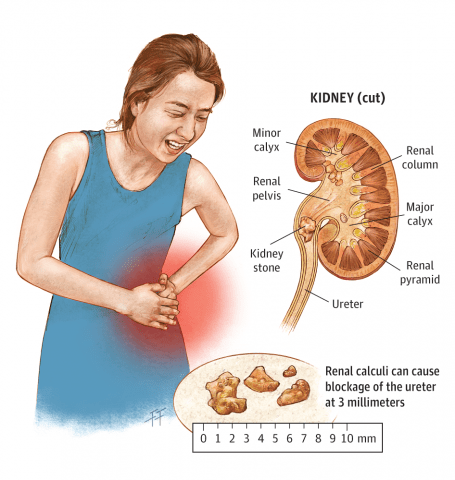
A kidney stone is a hard, crystallized mineral material formed within the kidney or urinary tract. Nephrolithiasis is the medical term for kidney stones. The kidneys filter the blood and remove the extra waste and water as urine. Many waste chemicals are in the urine. They can sometimes form crystals that clump together to make stones.
There are four main types of kidney stones:
Symptoms:
Pain is typically the first sign of a kidney stone. Known as ‘renal colic’, the pain usually begins when a stone moves from where it has formed into the urinary tract. This causes a gripping pain in the back, just below the ribs, it can spread around the front of the body and sometimes towards the groin. Other features that appear in a few of the cases are:
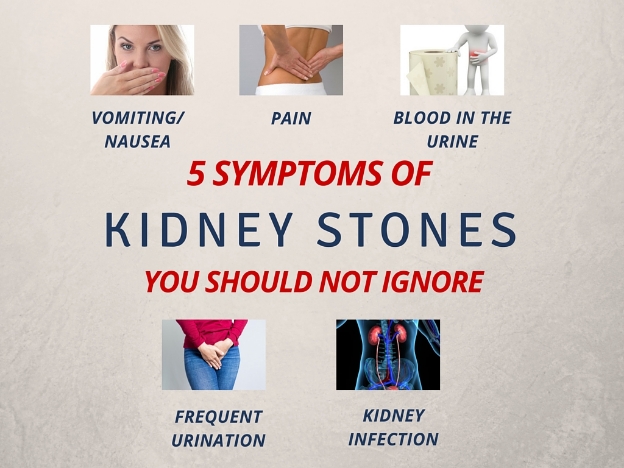
Causes:
Kidney stones form when there is a decrease in urine volume and/ or an excess of stone-forming substances in the urine.
Diagnosis:
Diagnosis of kidney stones is best accomplished using an ultrasound, intravenous pyelography (IVP), or a CT Scan.

Kidney Stones as per Ayurveda:
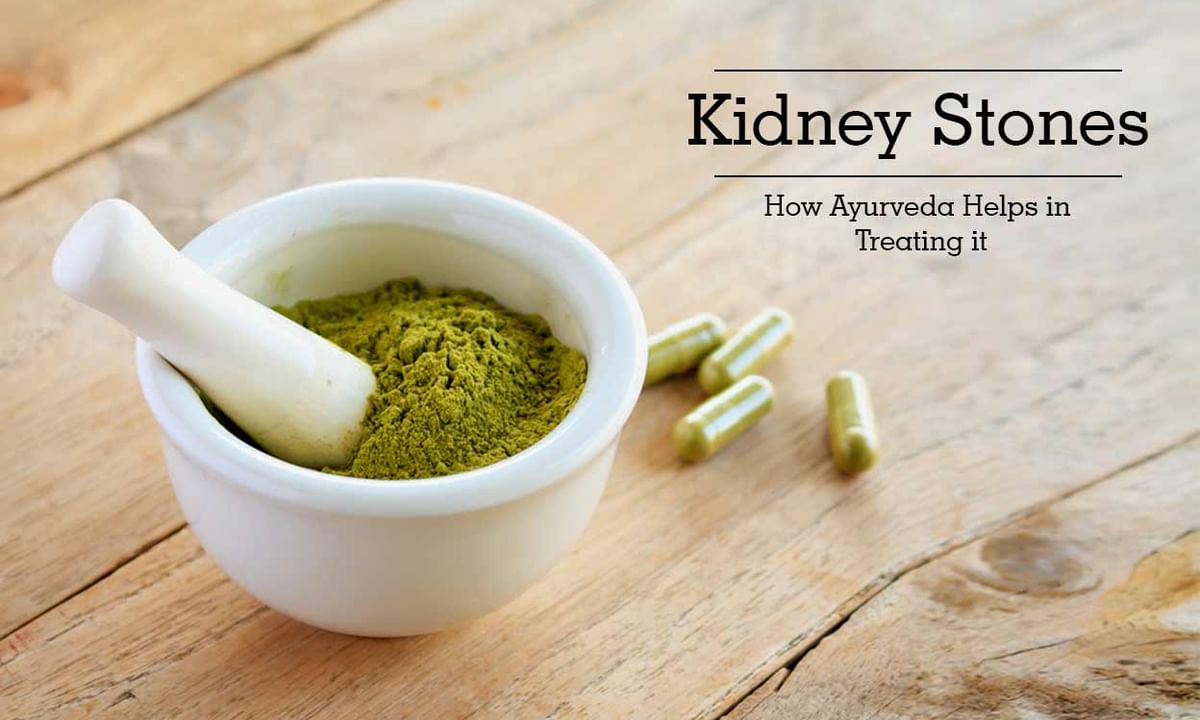
In Ayurveda, Kidney Stones are referred to as “Mutrashmari”. Mutra means urine, and Ashmari means stones. The basic causative factor & symptom for Mutrashmari is tridosha aggravation.
When Vata is accumulated in Vasti (urinary bladder), due to its Ruksha guna (dry-rough quality), it stimulates to dry up of Mutra (urine), and Shukra converts to urine crystals. The Kapha dosha is Guru (dominant), and Snigdha (oily); it binds those crystals/ gravels together to make a soft stone-like structure. Pitta dosha, by its paka Karma, completes the stone formation.
Due to the above factors, the urine gets concentrated, and its acidity increases. The reduced quantity of urine leads to increased dryness, sedimentation of salts, and obstruction of urine flow, leading to stone formation. It results in painful urination. Often, it is associated with a burning sensation. As the muscular tone is reduced, fatigue is complained in the localized area, and pain is found in the nearby parts like the bladder, flanks, back, urethra, etc.
Types and features:
Vataja Ashmari symptoms:
Pittaja Ashmari:
Kaphaja Ashmari:
Shukraja Ashmari:
Complications of Kidney Stones:
Debility, fatigue, emaciation, anaemia, acute renal failure, recurrent or persistent urinary infection.
Line of treatment according to Ayurveda:
Mild oleation (Snehana).
Medicines that are penetrative (Teekshna Ushna) and break the stones (Ashmari Bhedana), diuretics (Muthala Dravyas)- to flush out the small-sized kidney stones, sufficient water intake, watery food intake, coolants (Sheetala Upachara), and remedies to balance Vata are helpful to relieve Ashmari/stone.
According to the Dosha imbalance, each variety of calculi is treated easily and successfully.
We can also treat according to the stage of the disease:
Single drugs useful in Urinary Calculi / Kidney stones:
Stone Breaker: Bhumi amla, also known as "Stone Breaker," is good for reducing the risk of kidney stones. It increases urinary excretion of magnesium and potassium and reduces urinary oxalate in patients with hyperoxaluria. Consumption of Bhumi amla also helps in reducing urinary calculi. Stone Breaker (Bhumi Amla) has been used by the indigenous peoples of the Amazon for generations to support the elimination of gallstones and kidney stones. In Ayurvedic medicine, Stone Breaker is thought to hold the most promise against kidney stone formation. Although long-term randomized clinical trials are essential to confirm therapeutic properties, some preliminary studies suggest Stone Breaker may be effective in the gallbladder and kidneys and, indeed, have the potential to provide defense against kidney stones. 
Gokhru: Gokhru has always been an important part of Ayurveda for treating urinary and kidney problems because of its diuretic properties. Gokhru, also known as Gokshura, Puncturevine, or Devil’s weed, is famous for treating both kidney and urinary problems, especially kidney stones. If you are looking for natural ways of removing kidney stones, then there could not be a better solution than Gokhru. It contains plenty of active constituents, of which the main ones include alkaloids called norharman and Harman. Also, it consists of Steroidal saponins called Terrestrosins A–E, flavonoid glycosides, and furostanol. Therefore, it eventually helps in relieving you from various kidney disorders, especially stones.

Punarnava: The plant Punarnava acts on all important organ systems and rejuvenates them, giving them a new life, hence the name Punarnava. It is an effective diuretic remedy, helps to flush out kidney stones, reduces water retention, and helps to reduce swelling. It is also known to reduce pain due to kidney stones.
Varun: Stone formation is a complex process that depends on multiple factors, and the presence of nidus in the urinary bladder is not the only main single factor for the formation of stone. Experimentally, the drug Varuna prevents stone formation due to its anti-lithogenic activity and anti-crystallization properties. The drug decreases the urinary pH toward acidic levels. The diuretic action of this drug is attributed to the metabolic correction of the serum and urinary electrolyte levels in experimentally induced urolithiasis in albino rats. Therefore, it can be concluded that the Varuna (Crataeva nurvala) is helpful in reducing the recurrence of urolithiasis. (Ref: https://www.ncbi.nlm.nih.gov/pmc/articles/PMC3221072/).
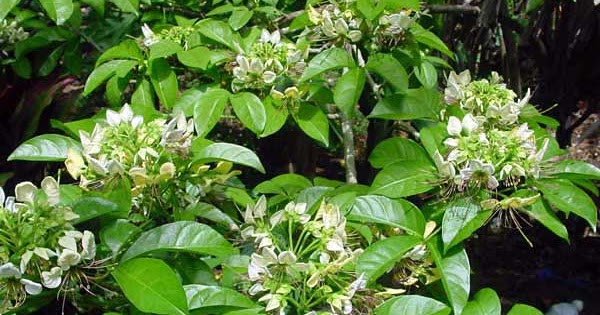
Cardamom: It is used to cure painful urination, nausea, and vomiting, along with treating kidney stones. It is an effective analgesic for pain and helps to reduce inflammation. Additionally, it also is a diuretic that assists the flow of urine.
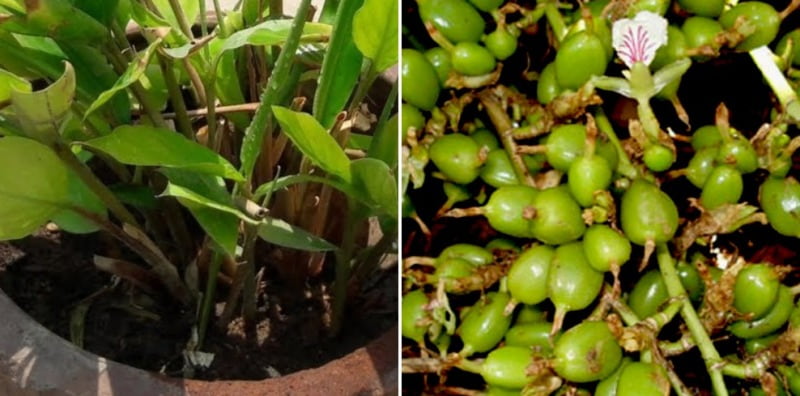
Cucumber: In ancient Ayurvedic literature, it is claimed to be beneficial as a preventive and curative regimen for the treatment of kidney stones. It is a natural remedy that has obvious cooling effects. Apart from that, it has a rich water content which detoxifies the body, neutralizes toxins, and cleanses the bladder. It is high in magnesium, which is necessary for the treatment of kidney stones.
Classical Herbal Formulations used in Ashmari/ Kidney Stones:
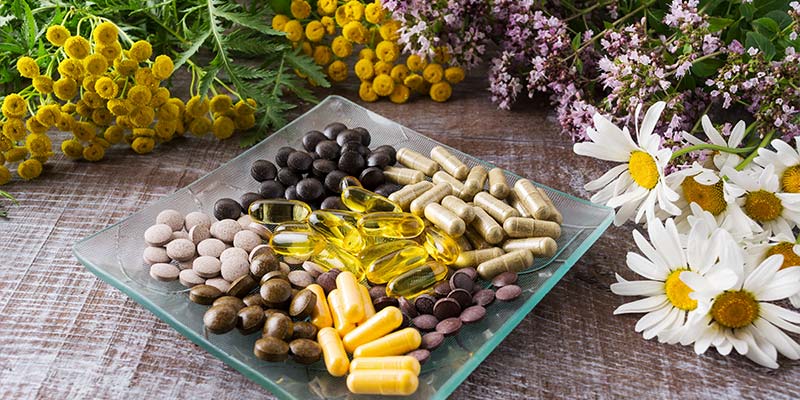
Yoga:
It is advisable to practice yoga along with medicines to relieve the symptoms of calculi. Some of the Asana useful to reduce the conditions are:
Panchakarma Detox Therapies :
Panchakarma is suggested as it removes all the bad elements out of the body, by cleaning all body.

Self-care Tips:

Disclaimer : Sandeep Kumar and Anupam Vasudeva are not GP, they have Ayurveda medical degree from India where it is considered equal to any other medical degree. This qualification is recognized in Australia by vetassess governing body as Complementary Health Therapists. Life Line Ayurvedic Herbal Clinic does not claim to cure a disease or terminal illness and does not create any unreasonable expectation of beneficial treatment. Ayurvedic medicines and treatments are generally considered to be safe but rarely may be associated with possible adverse reactions in individual cases. We recommend seeking urgent medical attention in the case of an adverse reaction. This website provides you with information. You must contact your Ayurvedic or another health professional before you apply them. Read More